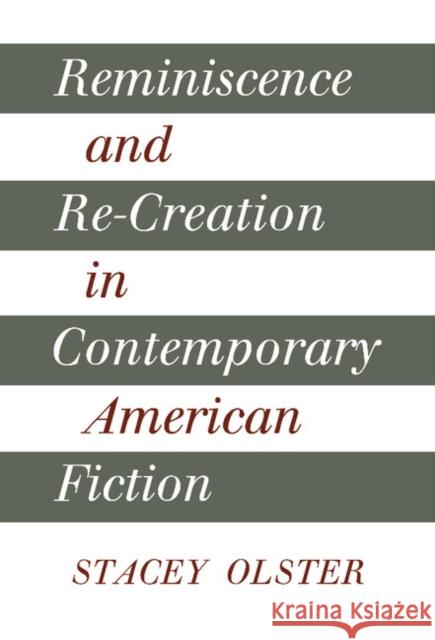Reminiscence and Re-creation in Contemporary American Fiction » książka
Reminiscence and Re-creation in Contemporary American Fiction
ISBN-13: 9780521363839 / Angielski / Twarda / 1989 / 232 str.
Reminiscence and Re-creation in Contemporary American Fiction
ISBN-13: 9780521363839 / Angielski / Twarda / 1989 / 232 str.
(netto: 402,90 VAT: 5%)
Najniższa cena z 30 dni: 382,84
ok. 16-18 dni roboczych.
Darmowa dostawa!
The world reflected in post-modernist fiction is one of chance and randomness, devoid of historical intelligibility. Stacey Olster challenges this view by distinguishing American post-modernism--with respect to the views of historical processes that its practitioners share. Arguing that their experience of communism proved instrumental in shaping the historical perspective of novelists who began writing after World War II, Olster examines their change in perspective in the 1950s after historical events forced them to acknowledge the failure of the communist ideal in Russia. Focusing on Norman Mailer, Thomas Pynchon, John Barth, Robert Coover, and E.L. Doctorow, Olster portrays the idiosyncratic--but consistent--model of history that each began to construct in his work in order to preserve the illusion of an ordered sense of time. The author defines the qualities the writers share that form a common sensibility: a vision of historical movement taking the shape of an open-ended spiral, a refusal to accept the inevitability of apocalypse, and a conscious return to the traditions of earlier American authors.











